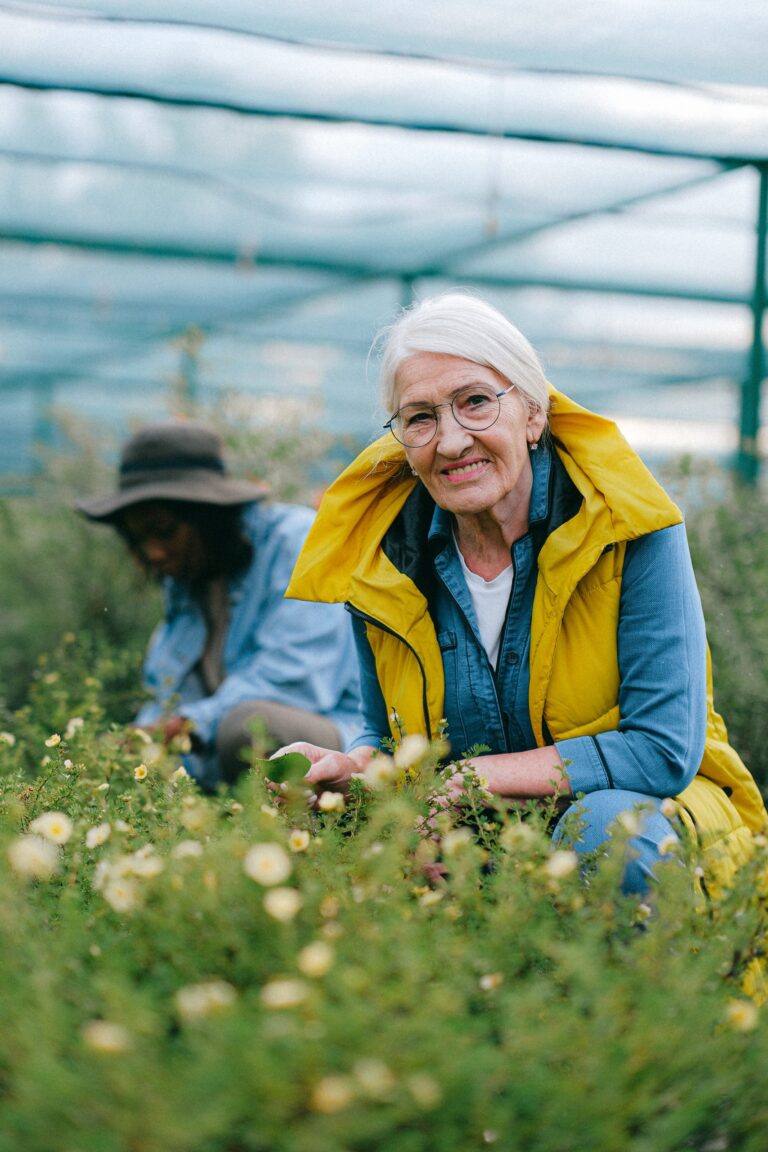Reviewed by Debbie Marcello
Gardening doesn’t just pass the time—it keeps seniors mentally sharp, physically active, and emotionally uplifted. But not every method works for aging hands, sore joints, or mobility limitations. That’s where the right tools and smart strategies come in.
Why Gardening Is More Than Just a Hobby
Gardening can reduce stress, improve mood, and even help with sleep. But here’s what most people miss:
It also supports mobility, balance, and cognitive health.
Studies show seniors who garden at least twice a week report fewer symptoms of depression and better life satisfaction. The benefits stack up fast—if done safely.
Start Small and Make It Easy
Bending, digging, and standing too long can lead to aches or injuries. That’s why starting with a manageable setup is key.
- Choose raised garden beds or vertical planters to reduce bending.
- Try container gardening on patios or porches for easy access.
- Keep the layout simple. Use wide paths with non-slip surfaces.
If it feels like too much, it probably is. Keep the experience stress-free and enjoyable.
Must-Have Tools That Make Gardening Easier
Not all tools are senior-friendly. These are:
- Ergonomic hand tools with padded, non-slip handles
- Lightweight hoses or self-coiling models
- Rolling garden seats to reduce strain from standing
- Long-handled weeders so you don’t have to bend
Want to avoid extra trips to the shed? Keep your essentials in a lightweight tote or belt pouch.
Smart Timing: Avoid the Hottest Hours
Older adults face a higher risk of heat-related issues. So don’t let the sun ruin your day.
- Aim for early mornings or late afternoons
- Wear wide-brimmed hats, breathable clothes, and sunscreen
- Take breaks every 20–30 minutes and hydrate regularly
Don’t wait for signs of dehydration—by the time you feel thirsty, you’re already behind.
Make It Social: Gardening with Friends or Caregivers
Gardening doesn’t have to be a solo activity. In fact, it shouldn’t be.
Invite a friend, neighbor, or caregiver to help out. They can:
- Reach high places or handle heavier tasks
- Keep you company and provide supervision if needed
- Share the joy of planting, harvesting, and even meal-prepping afterward
Even just talking about plants and plans can spark happiness.
Add Comfort and Safety to the Experience
Your comfort matters as much as your crops. Try these simple changes:
- Use kneeling pads or cushioned benches
- Choose slip-on waterproof gloves for less hassle
- Label tools or add colored tape so they’re easier to find
- Add a shade umbrella or pop-up canopy for longer sessions
One small upgrade could be the difference between giving up or keeping at it.
Don’t Forget the Therapeutic Perks
Gardening isn’t just physical. For many seniors, it brings back fond memories, gives a sense of purpose, and adds rhythm to the day.Even indoor options like herb gardens on windowsills can make a big impact. If mobility is limited, adaptive options still allow participation—and that’s the point.


